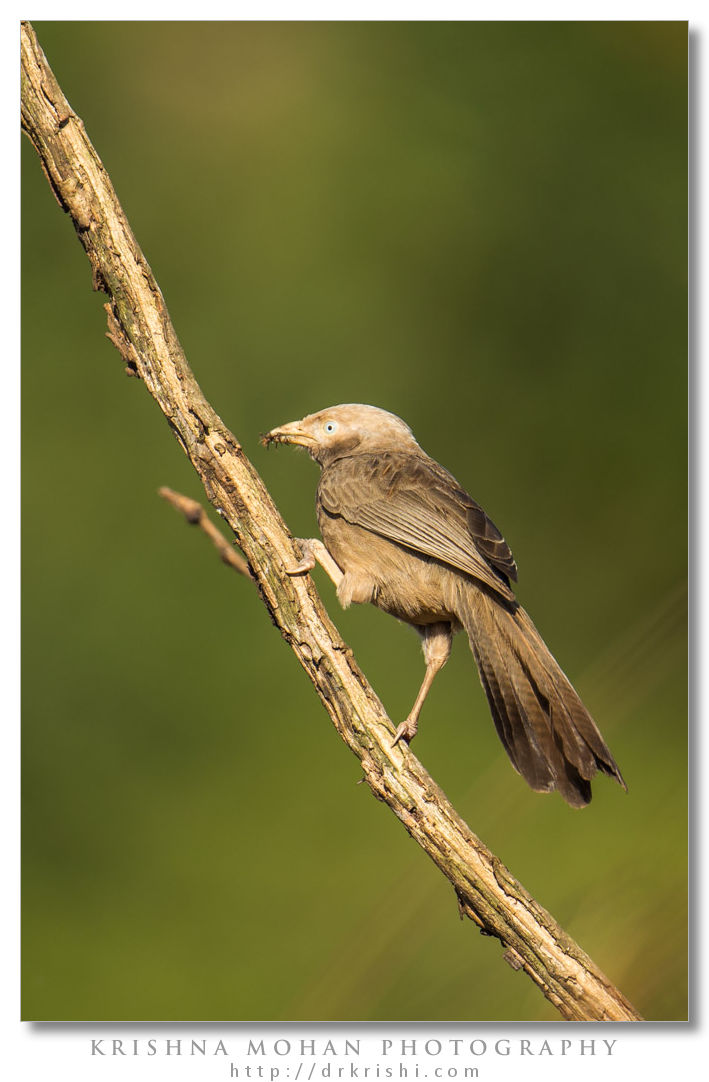
It was the golden light of winter solstice evening which was illuminating the ground as well as this Yellow-billed Babbler on a branch with a spider in its beak. It was photographed using my Canon EF 300mm f/2.8L II IS USM with Canon EF 2X III Extender on Canon EOS 5D Mark III Camera. The Yellow-billed Babbler also called the White-headed Babbler (Turdoides affinis) is an Old World babbler endemic to southern India and Sri Lanka. The Old World babblers are a large family of Old World passerine birds characterized by soft fluffy plumage.

These birds have grey brown upper parts, grey throat and breast with some mottling, and a pale buff belly. The head and nape are grey. Nominate race of southern India has whitish crown and nape with a darker mantle. The rump is paler and the tail has a broad dark tip. Birds in the extreme south of India are very similar to the Sri Lankan subspecies. The eye is bluish white. The Indian form is more heavily streaked on the throat and breast.

They inhabit scrub and garden. This species, like most babblers, is not migratory, and has short rounded wings and a weak flight and is usually seen calling and foraging in groups of 5-10 birds. They are noisy birds, and the presence of a flock may generally be known at some distance by the continual chattering, squeaking and chirping produced by its members. One member often perches high and acts as a sentinel while the remaining members of the flock forage. They feeds mainly on insects, but also eat fruit and human food scrap.

Birds wake up before dawn and begin foraging. They are relatively inactive in the hot hours of the day. Second foraging occurs during evening hours. Once night falls, they preen themselves before going to roost. Members of a group roost next to each other with some juveniles wedging themselves in the middle of the group. When foraging the sentinel bird calls with wing fluttering and hopping. Allopreening is a common activity and members may beg for food from other members. Black Drongos, Rufous Treepies and Indian Palm Squirrels are often seen foraging near these babblers.

It builds its nest in a tree, concealed in dense masses of foliage. The normal clutch is two to four turquoise blue eggs. The eggs hatch after 18 to 21 days. The parent bird often stands on the rim of the nest rather than sit on the chicks. Brood parasitism by the Pied Cuckoo (Clamator jacobinus) is known. Chicks are fed mainly insects and the occasional lizard.


Looks like this one is carrying ants to feed the young one?